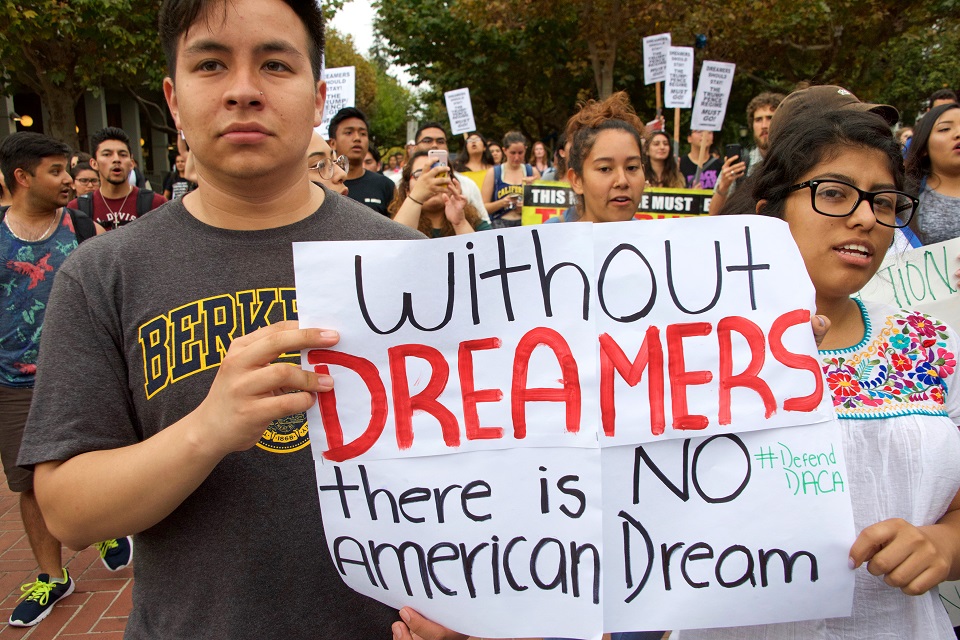Arguments over the delay will in general regress into moderately exclusive discussions about minority rights and majority rule. Yet, how about we ground this discussion in true results: without the delay, what laws would have passed the Senate that didn’t?

7 Bills That Should Have Been Passed But Weren’t
1. Promote Accountability and Government Efficiency Act
The PAGE Act states that employees recruited one year after the ratification of this bill will be hired on an at-will basis (i.e., removal or suspension for a good cause, bad cause, or no cause at all).
However, certain legitimate protections remain, including laws protecting employees from discrimination based on age, race, religion, color, sex, marital status, national origin, handicapping condition, or political affiliation, forbidden personnel practices, and whistleblower retaliation.
Laws ensuring the business privileges of veterans would likewise apply. For current representatives (not at-will), the enactment permits offices to suspend (with or without pay) an employee if the agency head confirms that the presentation or offense warrants such suspension.

2. Government Spending Accountability Act
Succeeding the General Services Administration’s conference misconduct, the bill would have restricted agency spending on conferences and travel.
Organizations wouldn’t have been able to spend more than $500,000 to support a solitary conference, and they would have been restricted to paying travel costs for no more than 50 employees of that agency who are positioned in the United States, for any international conference, except if the secretary of state verifies that participation for such representatives is in the public interest.
Toward the start of each quarter of each fiscal year, every agency will post on the public website of that agency a report on every conference for which the agency paid travel costs during the first 3 months.

3. The DREAM – Development, Relief, and Education for Alien Minors Act
The most important hindered bill was the DREAM (Development, Relief, and Education for Alien Minors) Act, which gives a path to citizenship to undocumented foreigners who were youngsters when they moved if they serve in the military or head off to college.
Under present law, these youngsters generally obtained their immigration status solely from their parents, and if their parents are undocumented or in immigration limbo, most have no documented proof to get legitimate residency, regardless of whether they have lived the vast majority of their lives in the U.S. The DREAM Act would give such an instrument to people who can meet certain conditions.

4. Employee Free Choice Act (EFCA)
The Employee Free Choice Act is the main authoritative proposition because it will eliminate unfair barriers to union representation and collective bargaining with the goal that workers can get their fair share and improve jobs and benefits for everyone, it will assist workers in accomplishing the American dream by giving them the freedom to choose a union and deal all things considered.
In the wake of acquiring affirmation, the union and employer would be permitted only a 130-day period to time span to arrange and intervene in an agreement administering all work agreements.
If an agreement could not be reached during this very short time period, a government discretion load up would be needed to build up a compulsory two-year contract that would be applicable on both labor and management.

5. Paycheck Fairness Act
Gender-based pay discrimination remains an adverse problem in the working environment. Inconsistent compensation for significantly equivalent work exists across a wide range of occupations, regardless of educational level or geographical location, and is a contributing factor to the persistent gender wage gap.
In present times, women who work full time all throughout the year are paid on an average only 84 cents for every dollar paid to men, bringing about a gap of $10,033 each year.
This bill would make it simpler for women to raise concerns about pay inequity in their working environments, by requiring employers to demonstrate that any compensation differentials between men and women are due to different responsibilities and not just gender, by allowing women to reveal their pay rates for the purpose of investigating pay disparities even when otherwise prohibited from doing so, and by restricting retaliation against women who bring up pay disparity.

6. American Jobs Act
This bill was the Obama administration’s boost proposition. It incorporates a 50 percent cut in the payroll tax for workers, and a similar cut for small businesses, just as help to states to pay teachers and different specialists, unemployment benefit expansion, infrastructure spending, and incentives to hire unemployed workers, and more.
None of the funds appropriated or regardless made accessible by this Act may be used for a project for the construction, alteration, maintenance or fix of a public building or public work except if the entirety of the iron, steel and manufactured goods utilized in the project are made in the United States.
And all laborers and mechanics employed by contractors and subcontractors on projects financed straight by or assisted in whole or in part by and through the Federal Government in accordance with this act shall be compensated at rates not less than those prevailing on projects of similar characteristics in the territory as determined by the Secretary of Labor.

7. Public Safety Employer-Employee Cooperation Act
State and local public well being officers play an essential role in the endeavors of the United States to detect, respond and prevent terrorist attacks, respond to natural disasters, hazardous materials, and other mass casualty occurrences. For this employer-employee participation is fundamental in addressing these needs and in this manner, it is in the National interest.
The Federal Labor Relations Authority (FLRA) is an autonomous agency of the federal government charged with adjudicating labor relations between federal employees and the federal government. As of now, the FLRA has no purview over state or local public-sector employees.
The Federal Government will encourage mediation, conciliation, and voluntary arbitration to help and energize businesses and the delegates of their representatives to reach and keep up with agreements concerning wages, working hours, terms & conditions, and to make all reasonable efforts through negotiations to settle their disparities by the common agreement reached through collective bargaining or by such methods as might be accommodated in agreement for the settlement of disputes.
The shortfall of satisfactory collaboration between public safety employers and employees has implications for the security of employees, impacts the upgrading of police and fire services of local communities, the health and well-being of public safety officers, and the morale of the fire and police departments, and can influence interstate and intrastate trade.
RELATED POST: 6 Most Controversial And Debated Laws In U.S. History








3 thoughts on “7 Bills That Should Have Been Passed But Weren’t”
Joe Biden is the WOST President in the history of America. He is breaking the law by letting illegals walk over our borders snd doing nothing about it. The Afghanistan withdrawal was a mess and still is. The amount of money he is spending is absurd and is bankrupting our country He is taxing us to death. He doesn’t really care about the American people like Trump did. He is old and senile and is an embarrassment to our country. He needs to be impeached!!!!
You are so right..He also has made out by stealing from Ukraine businesses, by deception, and is the cause of the current conflict.
I agree, He is going to Bankrupt our Country spending his trillions on his projects. We are already nearly bankrupt, and our taxpayers are going to have to foot the bill sooner or later ad it may put us into a deep depression.